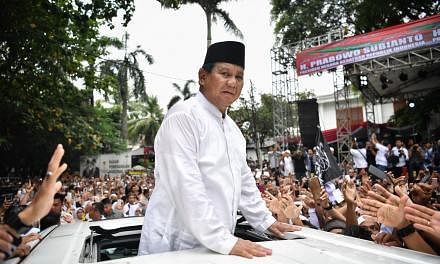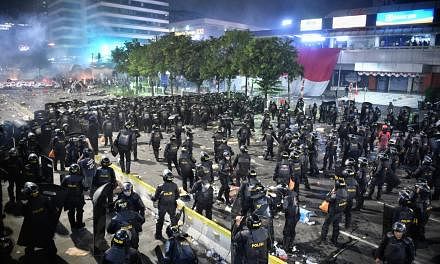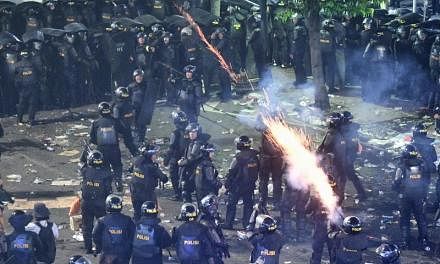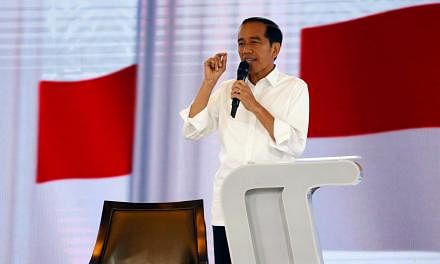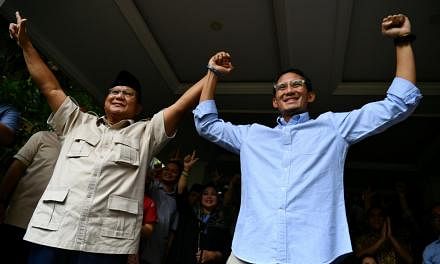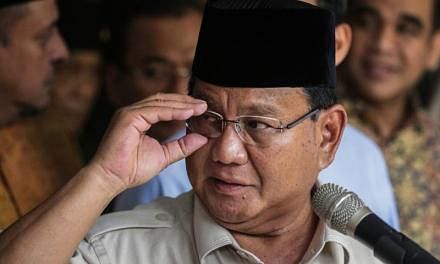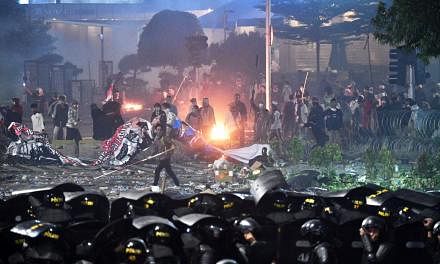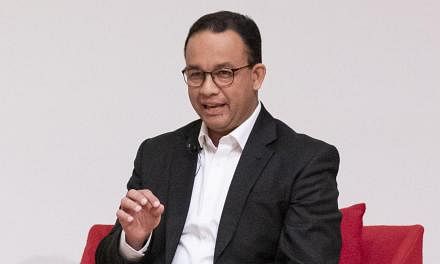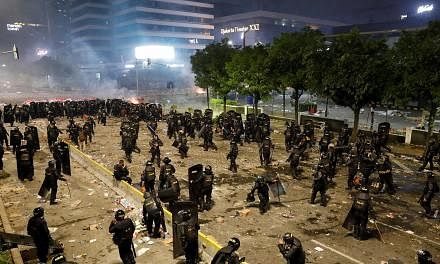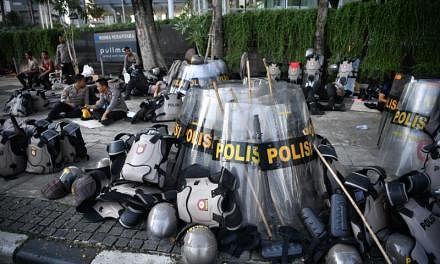1. Who said what?
Presidential hopeful Prabowo Subianto is disputing unofficial quick count results by pollsters that show the incumbent Joko Widodo with 54 to 55 per cent of the votes, against the 45 to 46 per cent he garnered at last Wednesday's election.
The retired army general has accused pollsters of being bias, adding that his own campaign team's tally shows him winning the election with 62 per cent of the votes.
He has also made allegations of electoral fraud and urged the General Elections Commission(KPU) and Bawaslu election supervisory body to investigate and ensure the polls were conducted fairly.
The government, however, has dismissed accusations that the elections were rigged in favour of President Joko.
Coordinating Minister for Political, Legal and Security Affairs Wiranto, on Wednesday (April 24) said the current administration has never sought to interfere in the work of the KPU or Bawaslu, which are independent of the presidential office.
"We had witnessed the elections go on smoothly and peacefully, and 33 countries have acknowledged us for that based on evaluations by their observers who came here," said Mr Wiranto, who goes by one name. "They did not just make up something."
2. What are "quick counts"?
A quick count is an unofficial tally of the votes from an election, typically conducted by non-government organisations specialising in areas like political risk and market research.
These pollsters would randomly sample votes cast as reflected on C1 forms put up at polling stations across the country following the end of an election.
According to a report in The Jakarta Post, polling firms took samples of votes from between 1,500 and 5,000 polling stations at last week's election.
Unlike exit polls, in which pollsters ask people who they voted for, a quick count is taken from samples of votes cast.
Similar quick counts conducted by these Jakarta-based pollsters at past elections - including the last presidential polls in 2004, 2009 and 2014, as well as the more recent 2017 gubernatorial election - were largely accurate.
3. How are "real counts" conducted?
Votes are counted manually by election officials and volunteers at polling stations after voting closes at 1pm local time on election day.
A C1 form is used to record the vote tally at each polling station from district level and up, and are completed by polling officers deployed at more than 813,000 polling stations across the country on April 17, when Indonesia held the world's largest single-day elections.
The results at the polling stations of each of the 7,201 sub-districts are then added up and combined to give the number of votes in each of the 514 districts and cities.
These are then tallied for each of the country's 34 provinces before results are consolidated at the national level by the KPU in the capital Jakarta.
The commission may take up to 35 days from polling day to complete the counting process, which means it has until May 22 to release the official results.
4. How did Mr Prabowo establish his 62 per cent vote share?
His campaign team spokesman said their count was similarly derived from photos of C1 forms sent by polling witnesses to the headquarters of various political parties in the coalition that nominated Mr Prabowo and his running mate Sandiaga Uno for election.
According to Mr Prabowo, his campaign's tabulation was based on a "real count" of votes from more than 320,000 polling stations, but the spokesman said later that the team has since counted the votes at around 500,000 polling stations.
5. What are Bawaslu and KPU doing?
Bawaslu said more than 7,000 election-related violations have been filed with the agency since the campaign started last September.
Of these, 343 indicate criminal offences and 5,167 indicate administrative violations, 121 indicate ethics violations and 696 indicate other types of violations, which the agency is looking into.
The KPU is in the process of tabulating votes in C1 forms being submitted from around the country.
The commission has completed a third of the total tally thus far and its interim result still show Mr Joko and Dr Ma'ruf ahead with 56.1 per cent of the votes to the 43.9 per cent of Mr Prabowo and Mr Sandiaga.


